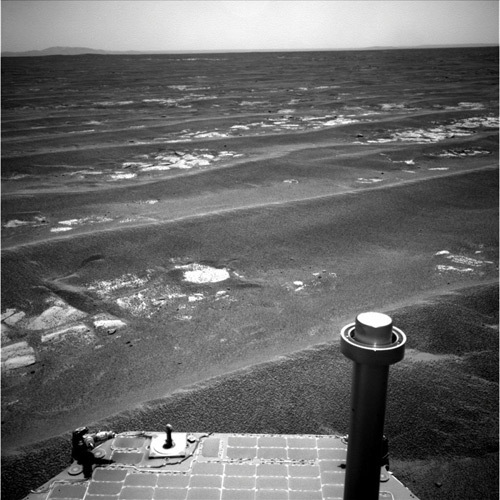
 Robotic space exploration is better than no space exploration at all, and the Mars Rovers have proven to be particularly remarkable machines. Those who made and manage them deserve to be proud. The latest news is that the Opportunity rover has, after seven years, traveled a total of a little over twenty miles, some 50 times its design distance.
Robotic space exploration is better than no space exploration at all, and the Mars Rovers have proven to be particularly remarkable machines. Those who made and manage them deserve to be proud. The latest news is that the Opportunity rover has, after seven years, traveled a total of a little over twenty miles, some 50 times its design distance.
That’s quite an impressive accomplishment, but it does help to suggest why manned exploration is likely to have real advantages over robotic vehicles (in the present case, a vehicle that is in fact manned at a distance) for some time to come. Let’s imagine that Opportunity, rather than a bunch of Englishmen, had arrived at Jamestown in 1607 and set out to explore the continent. At the rate of twenty miles every seven years, and assuming a good deal of counterfactual geography (i.e. the ability simply to travel as the crow flies) it would be approaching somewhere in the vicinity of Norman, Oklahoma about now.
It’s not just that humans can move faster and cover more ground while on the ground; someday we might cede that advantage to robots. Rather, the human advantage is to be found in the urgency of discovery and the call of the wild, in risk-taking and on-the-scene ingenuity. Such things drive us to press beyond the frontier of the moment. The next few years are unlikely to be kind to man in space, but we’ll know we have a serious manned space program when the astronauts check in with Mission Control whenever they damn please.
